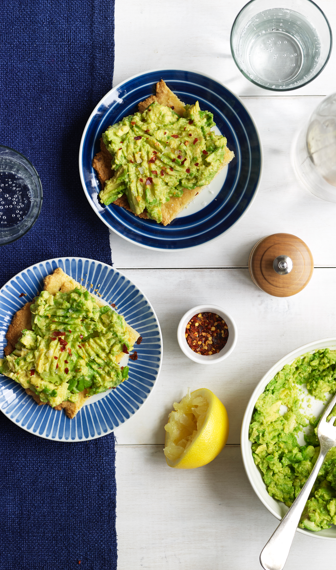Even Atkins advocates who totally get it that the fear of fat is unfounded on a low-carb diet might still have some concerns about eating saturated fat. As a reminder, saturated fat is any fat that remains solid at room temperature, including butter and most animal fats, as well as coconut and palm oil. After all, one of the ongoing criticisms of the Atkins Diet is that it contains more sat fat than is currently recommended. Let us put your mind at rest.
The Risk of Replacing Sat Fat with Carbs
When people decrease their intake of one nutrient, they naturally have to replace it with one or more other nutrients. A recent meta-analysis made up of 11 American and European studies that followed more than 340,000 subjects for up to 10 years came to the conclusion that replacing saturated fat with carbohydrate increases the risk of coronary events(1). Yes, according to the best scientific evidence, the very recommendation made by most health experts to reduce saturated fat actually increases your chances of having heart disease! Yet this is the same dietary pattern adopted by many Americans(2).
A Serious Misunderstanding
The failure of low-fat dietary approaches is partially explained by the lack of understanding that when they lower their saturated fat intake, many people replace them with more carbohydrates. The culprit is not saturated fat per se. If your carbohydrate intake is low, there’s little reason to worry about saturated fat in your diet.
A Bad Combination
However, if your carbohydrate intake is high, increasing the levels of saturated fat in your diet may become problematic. Higher levels of saturated fatty acids in the blood have been shown to occur in individuals with heart disease(3). The Atkins Diet is all about controlling your carbohydrate intake to ensure that fat remains your body’s primary fuel. This explains why, on Atkins, saturated fat intake isn’t associated with harmful effects.
Surprising Results
Two of the authors of The New Atkins for a New You explored what happens to saturated fat levels in subjects who were placed on the Atkins Diet(4). The Atkins subjects consumed three times the levels of saturated fat as did other subjects consuming a low-fat diet. Both diets contained the same number of calories, meaning that all the subjects were losing weight. After 12 weeks, the Atkins group subjects showed consistently greater reductions in the percentage of saturated fat in their blood. Yes, those who ate more saturated fat had less in their blood stream than those who ate less sat fat.
The two researchers then did a second study, using weight-stable men who habitually consumed a typical American diet as subjects. The men followed a low-carb diet akin to the Atkins Lifetime Maintenance Phase, which contained more saturated fat than did their regular diet. All foods were prepared and provided to the subjects during each feeding period. Enough food was provided to maintain their weight. After six weeks on the diet, despite consuming more saturated fat, the men showed a significant reduction in their blood levels of saturated fat. They also improved their triglyceride and HDL cholesterol levels, LDL particle size, and insulin level. This study further supports the conclusion that a low carbohydrate intake stimulates the metabolism of saturated fat in the diet(5).
These two studies clearly show that low-carb diets high in saturated fat show effects that are very different from results in studies of individuals following a moderate- to high-carbohydrate diet, which is typical of the way most Americans eat. The likely cause is a combination of less storage and greater burning of saturated fat. This research supports the conclusion that dietary fat, even saturated fat, isn’t harmful in the context of a low-carbohydrate diet(6,7).
References:
1. Jakobsen, M.U., O’Reilly, E.J., Heitmann, B.L., Pereira, M.A., Balter, K., Fraser, G.E., et al., “Major Types of Dietary Fat and Risk of Coronary Heart Disease: A Pooled Analysis of 11 Cohort Studies,” American Journal of Clinical Nutrition, 89, 2009, pages 1425–1432.
2. Wang, L., Folsom, A.R., Zheng, Z.J., Pankow, J.S., Eckfeldt, J.H., “Plasma Fatty Acid Composition and Incidence of Diabetes in Middle-Aged Adults: The Atherosclerosis Risk in Communities (ARIC) Study,” American Journal of Clinical Nutrition, 78, 2003, pages 91–98.
3. Warensjo, E., Riserus, U., Vessby, B., “Fatty Acid Composition of Serum Lipids Predicts the Development of the Metabolic Syndrome in Men,” Diabetologia, 48, 2005, pages 1999–2005.
4. Forsythe, C.E., Phinney, S.D., Fernandez, M.L. Quann, E.E., Wood, R.J., Bibus, D.M., et al., “Comparison of Low Fat and Low Carbohydrate Diets on Circulating Fatty Acid Composition and Markers of Inflammation,” Lipids, 43, 2008, pages 65–77.
5. Volek, J.S., Fernandez, M.L., Feinman, R.D., Phinney, S.D., “Dietary Carbohydrate Restriction Induces a Unique Metabolic State Positively Affecting Atherogenic Dyslipidemia, Fatty Acid Partitioning, and Metabolic Syndrome,” Progress in Lipid Research, 47, 2008, pages 307–318.
6. Raatz, S.K., Bibus, D.M., Thomas, W., Kris-Etherton, P., “Total Fat Intake Modifies Plasma Fatty Acid Composition in Humans,” The Journal of Nutrition, 131, 2001, pages 231–234.
7. King, I.B., Lemaitre, R.N., Kestin, M., “Effect of a Low-Fat Diet on Fatty Acid Composition in Red Cells, Plasma Phospholipids, and Cholesterol Esters: Investigation of a Biomarker of Total Fat Intake,” American Journal of Clinical Nutrition, 83, 2006, pages 227–236.

